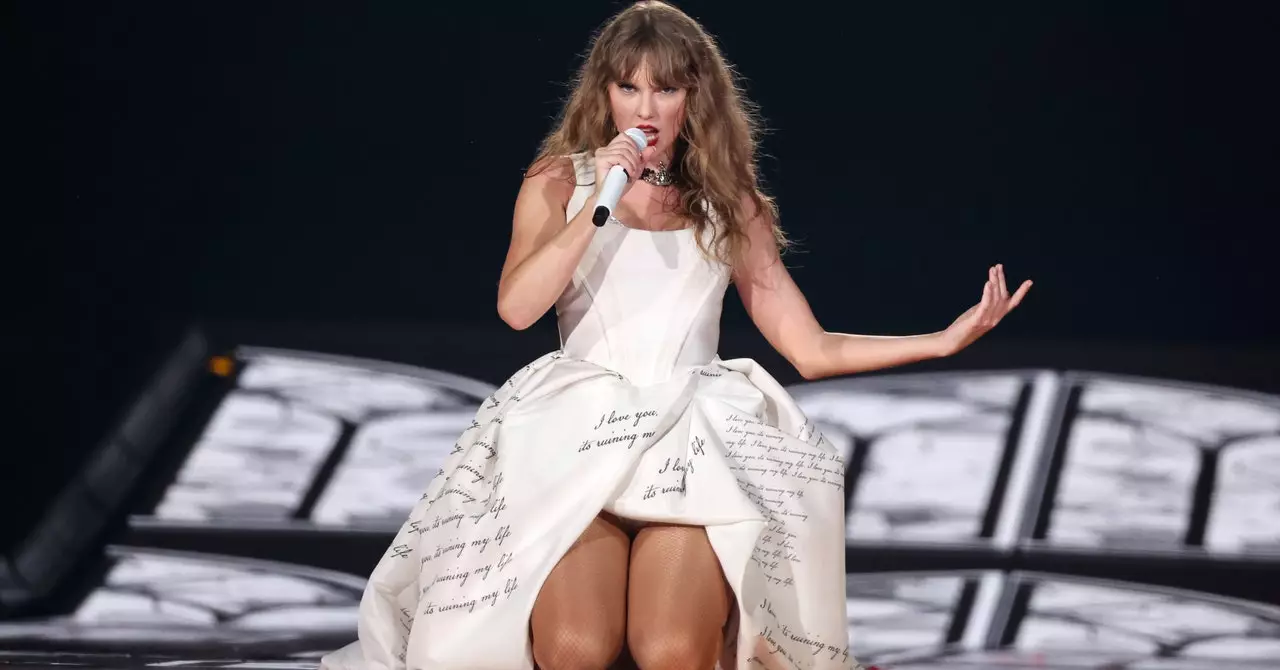The recent controversies surrounding major players in the ticketing industry have ignited significant public and governmental scrutiny. With the landscape significantly affected by high-profile events like concert tickets for Taylor Swift’s tour, both Live Nation and Ticketmaster have found themselves in the center of a storm fueled by allegations of monopolistic practices. This intense focus has now propelled the U.S. Senate to hold hearings on industry consolidation, signaling troubling signs for consumers and competitors alike.
In a surprising move, the U.S. Department of Justice (DOJ) stepped in with an antitrust lawsuit aimed at dismantling the alleged monopoly held by Ticketmaster and its parent company, Live Nation. The DOJ’s actions suggest a serious commitment to investigating not just corporate behavior but the underlying issues affecting everyday consumers—namely ticket prices, service fees, and accessibility to sought-after events. Live Nation’s rebuttal was swift; they contended that the lawsuit fails to address the real concerns of fans, arguing that the complexities of live entertainment economics make it impractical to label Ticketmaster as a monopoly.
The company stated that the majority of service fees are distributed to the venues, challenging the premise that all financial burdens fall on Ticketmaster alone. This perspective emphasizes the intricate relationship between ticketing services and the broader entertainment ecosystem, which is often overlooked in discussions of market dominance.
At the grassroots level, fans themselves have taken action to voice their discontent. A class-action lawsuit initiated by Swift’s fans highlights alleged grievances against Ticketmaster and Live Nation, including breach of contract, fraud, misrepresentation, and various antitrust violations. The core complaint revolves around claims that Ticketmaster misled fans regarding presale access and subsequently manipulated the market to extract higher prices.
This escalates the narrative from a merely corporate issue to one deeply rooted in consumer rights and expectations, reshaping how these companies engage with audiences. The plaintiffs argue that Ticketmaster’s exclusive contracts with major venues not only inhibit competition but also benefit the company financially at the expense of average concert-goers. By dictating presale practices and resale avenues, they argue that a monopolistic hold has been established, inflating ticket costs beyond reasonable market values.
In a development that broadens the implications of these legal proceedings, the new lawsuit mirrors earlier claims but now encompasses a wider range of artists beyond Taylor Swift. This extension captures a larger arena of consumers who are likewise affected by the perceived unfair practices of Ticketmaster. Additionally, the inclusion of a RICO (Racketeer Influenced and Corrupt Organizations) allegation suggests that claimants view this issue not merely as a contractual dispute but as part of a broader scheme of exploitative practices within the ticketing domain.
This evolving narrative reflects the growing frustration among consumers who feel marginalized by the monopolistic activities of powerful corporations, in stark contrast to the initial excitement surrounding event attendance. The stakes have escalated, positioning the ticketing debate as a pivotal moment for consumer advocacy and legislative action within the larger landscape of business regulation.
As these legal battles progress, the implications for both consumers and the ticketing industry will likely be profound. If the lawsuits succeed, they may herald significant changes in how tickets are bought and sold, possibly leading to increased competition and lower prices. Conversely, the continued entrenchment of Ticketmaster’s practices could cement its position, exacerbating frustrations felt by fans nationwide. The coming months will be crucial in determining the trajectory of the ticketing industry—one that must balance corporate interests against the rights and needs of its consumers.


Leave a Reply